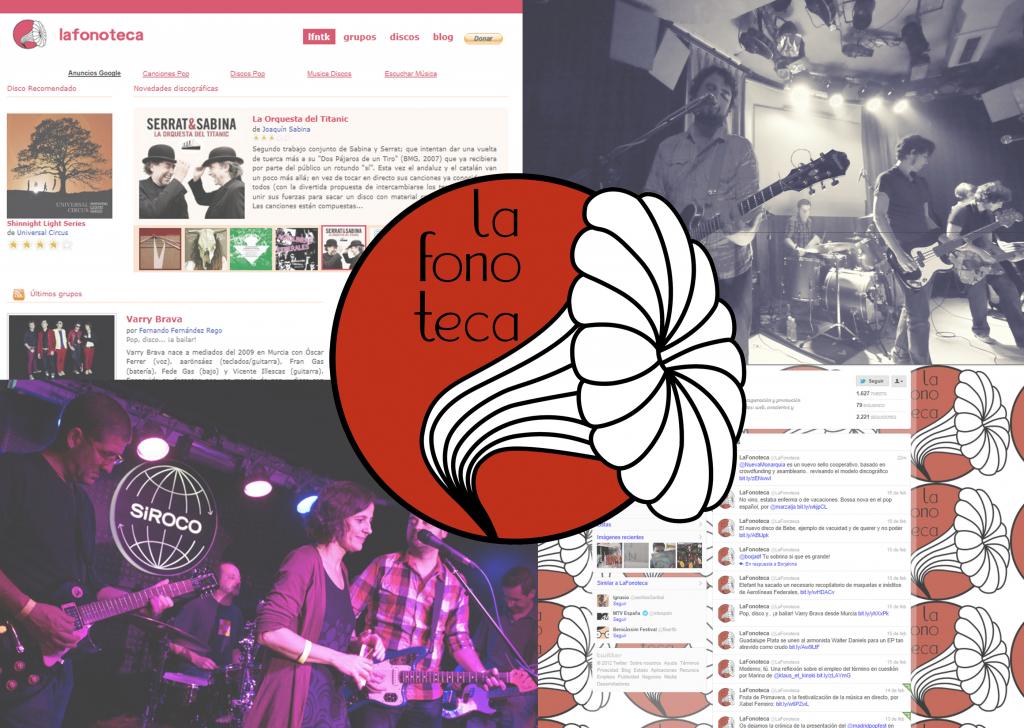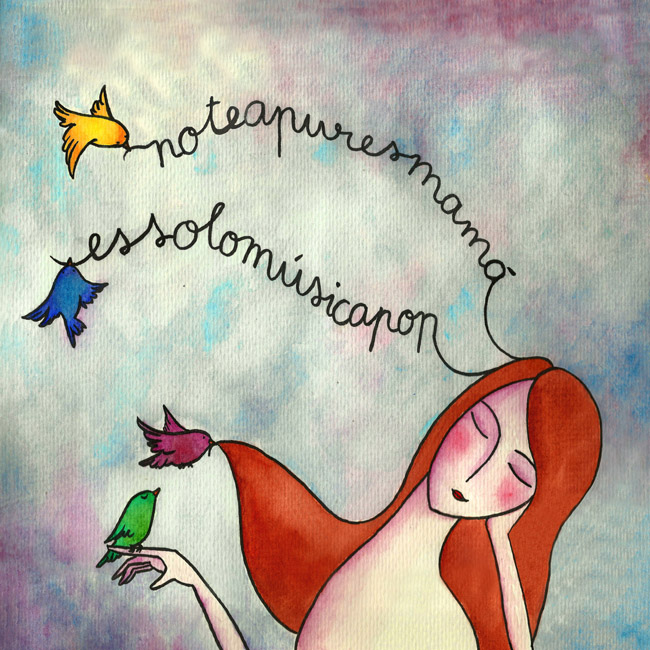Lab:
The Lab is a source of information for Artists and Art Lovers alike. You can find useful information to help develop your career as an artist such as tutorials, interviews, news, and a lot more!

Interviewing…LaFonoteca, or how to promote Spanish music.
LaFonoteca started in February 2008 due to the impossible task of finding rigorous and detailed information online about Spanish bands. Created by a group of friends, music lovers from all over Spain quickly joined in with enthusiasm to take part in this titanic task.
What began in early 2008 as a collaborative website, a historical online archive composed of biographies and discographies of Spanish bands, it has gone about diversifying its activities and broadening its horizons with the organisation of concerts in Madrid, London, Porto and Barcelona, as well as publishing records.
Raúl Alonso and Diana Cortecero, the founders and masterminds of LaFonoteca, graciously accepted to answer our questions to explain the project in greater detail.

How and why was LaFonoteca created?
Raúl: LaFonoteca initially started as a webpage for Spanish music in database format. We took inspiration from AllMusic. I used to look at AllMusic and I realised that there was a major gap regarding Spanish music, so we wanted to create the website. And later, regarding the website, we began to have several spin-offs, other types of activities like organising festivals and concerts, a disc fair and publishing vinyl collections: we publish one disc per year with what we like best from Spain during the year.
Diana: I think that LaFonoteca , as a webpage, is the only database of Spanish music that exists. Our goal has always been to support Spanish music, which has led us to organise concerts outside of Spain to present Spanish groups to the world. Over the years we have organised concerts in London and also in Porto, although it is particularly difficult because we always depend on our colleagues who are in other cities.
Raúl: Yeah, and within Spain, in addition to our groups in Madrid and Barcelona we organise a series of concerts in Seville, for instance, in collaboration with Sello Salvaje [Savage Record Label], a record label from Seville, which has allowed us to have a presence there as well.
Diana: Two years ago we started to publish discs and last year we organised the first independent disc fair which included more than 30 independent record labels and it was an important meeting point for this type of music. This year we have also collaborated in the organisation of the first QR Music Festival , the first music festival through QR codes.
How do you get in contact with new groups?
Raúl: We get rough cuts and information directly from group through the web or by mail…
Diana: And we go to a lot of concerts. Word of mouth goes a long way, the groups started to tell us of other groups, etc… It’s like a vicious cycle.
What’s the easiest part and what is the most difficult part about launching new groups?
Diana: Well, it’s neither difficult nor easy. In the end it’s a question of having enough time to dedicate to the project. They are doing very interesting things.
Raúl: The easy part, we want to believe that now there is a certain trust, there are people that will come to a concert we organised because they believe that if it’s an event we’re putting on then they will definitely like it.
The difficulty is getting over the hump, to go to bigger festivals or getting radio stations other than radio 3 to broadcast your programmes. This is the most difficult part.
Is getting over this hump one of your goals?
Raúl: Yes, in fact it’s one of our principal goals.
Diana: For us and for the groups, the more people that it reaches, the better.
Raúl: At the moment we are really working to try to have good media coverage to give press to these types of groups and initiatives, and we are very thankful that until now they have been paying a lot of attention to us in spite of the modest size of the project.
How do you sell the collections?
Raúl: At the moment, in our bandcamp site (http://lafonotecadiscos.bandcamp.com/), in all of the concerts we organise and in some stores in Madrid and Barcelona.
And to bring Spanish music outside of Spain, what do you do?
Raúl: We had a long period, of a year and a half, in which we were promoting groups in London with the idea of making a real exchange, that is, to make it possible to replicate what we’ve done here in other countries, with groups that are getting organised there to come here as well; and in exchange to send the emerging bands from here to there.
To do this we need some help because the economic investment is much greater: it’s necessary to get international flights, accommodation outside Spain and more and it becomes more complicated. Also, we started as pretty much amateurs and now we want to go a bit further. For this we’d love to find a sponsor, a brand interested in organising these types of concerts and exchanges. The idea is to find a brand that is interested in our concert series, that likes the image of LaFonoteca , and whose image and values we like as well. Something like that.
And what is your relationship with agents, record companies and producers?
Diana: In reality it is a pretty small world and in the end we got to know the whole world a bit. Every day we have more contact with professionals in this sector. When we did the disc fair for instance, at the beginning we didn’t know who to contact nor who would be interested in participating, however it turned out that many record labels wanted to be there, including some with a great history like Acuarela, Elefant or Jabalina.
Raúl: In the end, here in Spain, there is still a lot left to do. There is not a solid industry, no consolidated circuit...
In total, how many people are you?
Diana: In Madrid there are two of us, in Barcelona there are also two, and in London there are two more people. Also, the writing on the website is done by various collaborators from various places in Spain.
Would you be interested in having more people in other cities?
Diana: We prefer to go slowly, with care. At this moment we have a certain trajectory and standard of quality that we want to maintain and now we cannot open further fronts. We want to go slowly but with firm steps.
What do you need the most to realise your projects?
Diana: Basically time and money. Right now we have jobs in addition to this, so we have a very small amount of time to dedicate to this. We always think that “if we had 8 working hours a day to dedicate to this, we could take it much further”.
But we are evolving. At the beginning we were just a web page, and in 4 years we have managed to do a lot of other things.
What is the most satisfying part?
Raúl: People are really happy with what we are doing and this is contagious.
We have met many cool people and made a lot of friends.
Are you a company, an association…?
Raúl: We are a cultural association, which at the moment is the easiest solution.
What is the most difficult aspect, apart from the issue of time?
Raúl: The biggest problem is that the administration gives you a lot of hurdles. For culture in Spain, there are a lot of obstacles. The licenses, putting together a company…
Diana: It’s a little bit frustrating that instead of helping emerging culture they put up obstacles. They don’t make it easy for enterprising individuals.
Raúl: There are a lot of difficulties, if we wanted to become freelancers and create our own business it would be impossible. It’s not well set up.
Diana: When we wanted to make our activity official and see if we could create a company or a cultural association, we could tell that the help they give entrepreneurs doesn’t exist.
If you want to collaborate with LaFonoteca in any way, to propose something to them, or simply to say hello, you can do so by emailing them at [email protected].
Here are some videos of the groups which appear in the different collections by laFonoteca.



